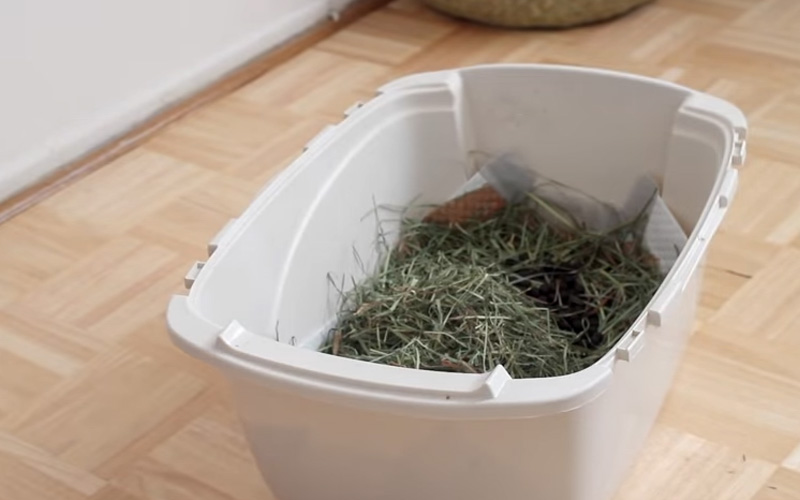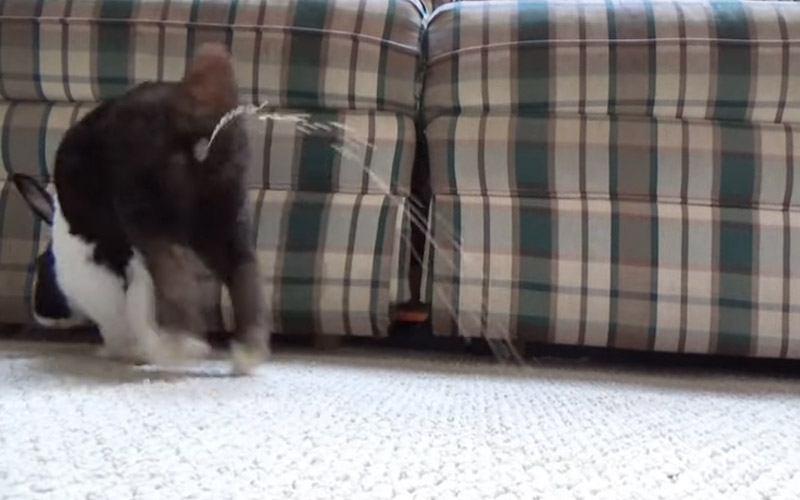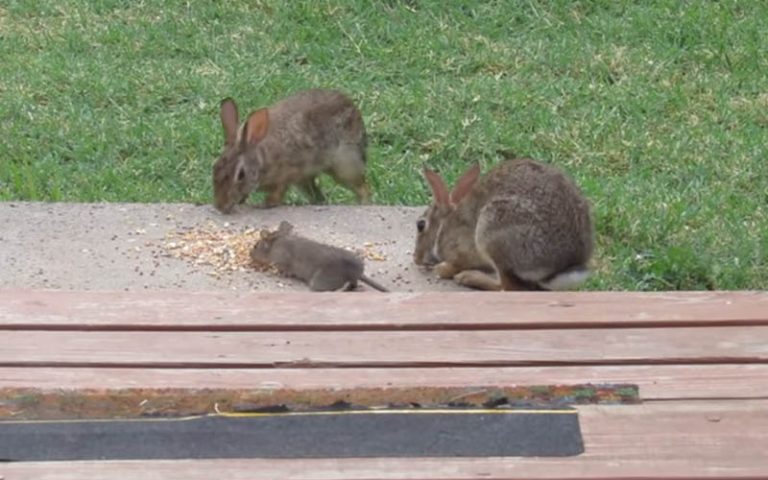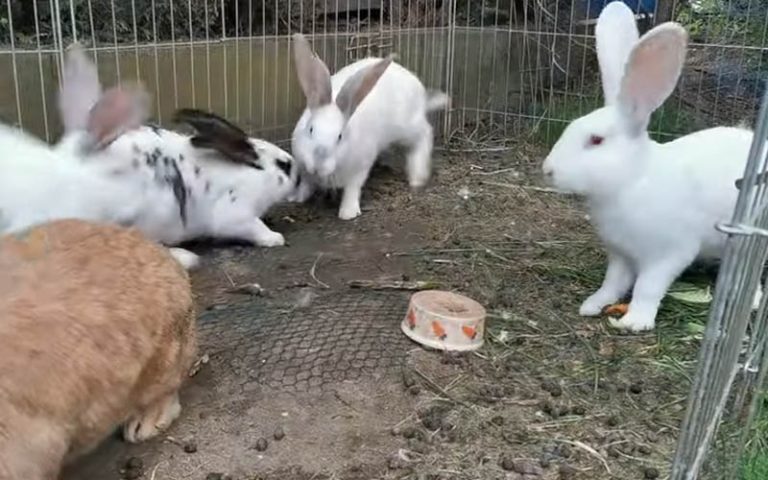Why Does My Rabbit Pee On Me? – Reasons & Solutions
Your rabbit might be marking you as part of its territory or expressing affection. Rabbits often urinate to establish ownership. Additionally, they might feel comfortable and secure with you, considering you a trusted companion. It could also be a sign of hormonal changes or a medical issue.
Why Does My Bunny Pee On Me and How Do I Get My Rabbit to Stop Peeing On Me?
Have you ever experienced the frustration of your pet rabbit unexpectedly urinating on you? It can be perplexing and even distressing, but understanding the reasons behind this behavior is significant for resolving the issue and strengthening your bond with your furry friend.
I find 7 common reasons why my rabbit pee on me and practical solutions to address this behavior.
1. Marking Territory
Rabbits are territorial animals, and urine marking is a natural behavior they use to establish and maintain their territory. When your rabbit pees on you, it could be their way of claiming you as part of their territory. This behavior is more common in unspayed or unneutered rabbits, as they have a stronger urge to mark their territory.
Solution: Spaying or neutering your rabbit can help reduce territorial behaviors, including urine marking. Additionally, providing your rabbit with a designated area, such as a litter box, where they can mark their territory may discourage them from urinating on you.
2. Fear or Stress
Rabbits are sensitive creatures that can easily become stressed or frightened by unfamiliar situations or environments. When rabbits feel threatened or anxious, they may urinate as a way to mark their territory and assert control over their surroundings.
Solution: Creating a calm and secure environment for your rabbit is essential for reducing stress-induced urination. Avoid sudden movements or loud noises that may startle your rabbit, and provide plenty of hiding places where they can retreat when feeling anxious. Additionally, spending quality time with your rabbit and building trust through gentle handling can help alleviate their fears.
3. Overexcitement
Just like humans, rabbits can experience moments of excitement or arousal that may cause them to lose control of their bladder. This is especially common during playtime or when receiving attention and affection from their owners.
Solution: Recognizing your rabbit’s threshold for excitement and taking breaks during play sessions can help prevent overstimulation and reduce the likelihood of urination. Additionally, reinforcing positive behaviors with treats and praise can help redirect their excitement in a more controlled manner.
4. Medical Issues
In some cases, excessive urination or inappropriate urination behavior may be a sign of an underlying medical problem such as a urinary tract infection or bladder stones. These conditions can cause discomfort or pain, leading your rabbit to urinate more frequently or in unusual places.
Solution: If you suspect that your rabbit’s urination behavior is due to a medical issue, it’s essential to consult with a veterinarian for a thorough examination and appropriate treatment. Your vet may recommend diagnostic tests such as urine analysis or imaging studies to identify the underlying cause of the problem.
5. Lack of Litter Box Training

Rabbits are naturally inclined to urinate in specific areas, but they may need guidance and training to use a litter box consistently. If your rabbit hasn’t been properly trained or if their litter box is not easily accessible or maintained, they may resort to urinating in other locations, including on their owners.
Solution: Start by providing a clean and appropriately sized litter box for your rabbit, and place it in a quiet and easily accessible location. Encourage your rabbit to use the litter box by placing some of their soiled bedding or droppings inside to attract them. Consistency and positive reinforcement are key to successful litter box training.
6. Hormonal Changes
Hormonal fluctuations, especially in unspayed or unneutered rabbits, can influence their urination behavior. Female rabbits may exhibit increased territorial marking behavior during their reproductive cycle, while male rabbits may become more assertive in marking their territory as they reach sexual maturity.
Solution: Spaying or neutering your rabbit not only helps control hormonal behaviors but also offers various health benefits, including reducing the risk of reproductive cancers. Consult with your veterinarian to determine the appropriate timing for spaying or neutering your rabbit based on their age and overall health.
7. Social Hierarchy
In multi-rabbit households, urination behavior can also be influenced by social dynamics and hierarchy. Dominant rabbits may assert their authority by urinating on subordinate rabbits or even on their owners as a display of dominance.
Solution: Establishing clear boundaries and providing separate spaces for each rabbit can help minimize conflicts and reduce dominant behaviors. Ensure each rabbit has their food, water, and hiding spots to prevent competition and reduce the need for territorial marking.
FAQ
Rabbits spray pee on each other to mark territory and establish dominance. It’s like them saying, “Hey, this is my space!” or “I’m the boss here!” This behavior is common during mating or when rabbits are feeling a bit territorial. It’s their way of communicating and asserting themselves in their social hierarchy.
Your rabbit might be peeing on your bed due to various reasons such as marking territory, feeling stressed, or being untrained. It’s important to address this behavior by providing a suitable litter box, reducing stressors in their environment, and reinforcing positive bathroom habits.
Your rabbit might be peeing everywhere all of a sudden due to stress, a change in environment, or a health issue like a urinary tract infection. Ensure they have a clean, comfortable space, and consult a vet to rule out any medical problems. Providing ample litter boxes and spaying or neutering can also help curb this behavior.
Your female rabbit is likely spraying urine to mark her territory or communicate with other rabbits. This common behavior is a way for her to establish dominance or attract a mate. Ensure she is spayed to reduce hormonal-driven marking. Keep her environment clean and provide enough space to minimize territorial instincts.







